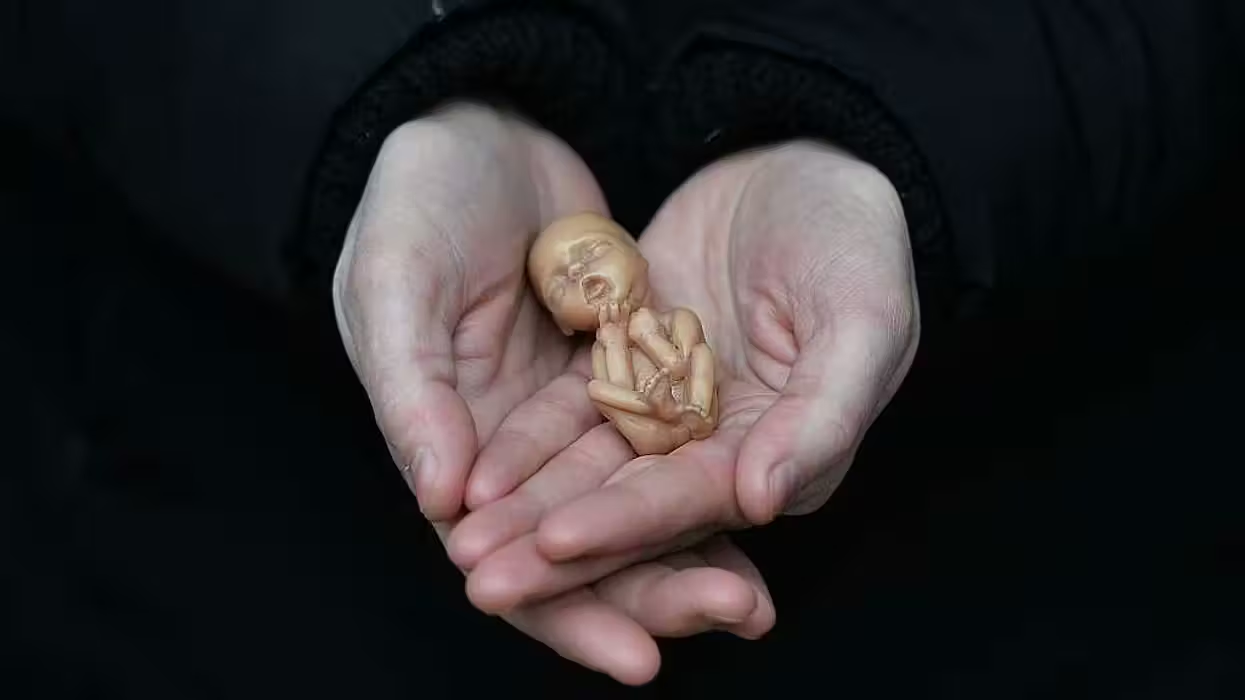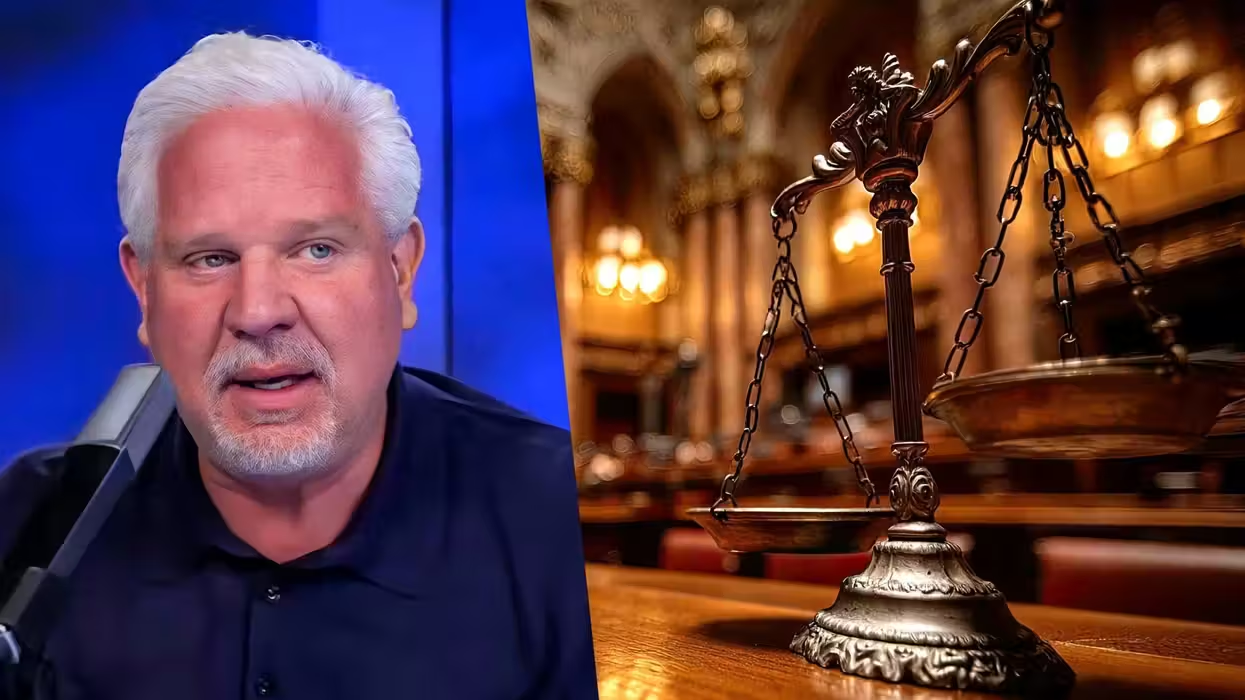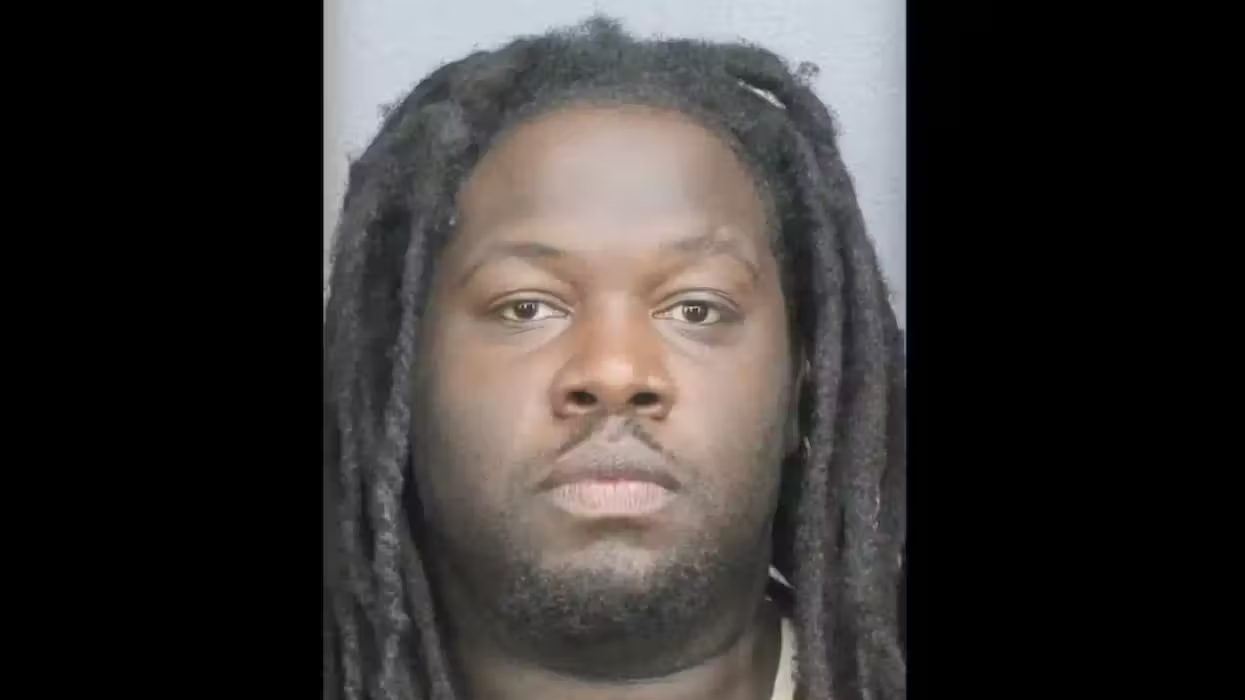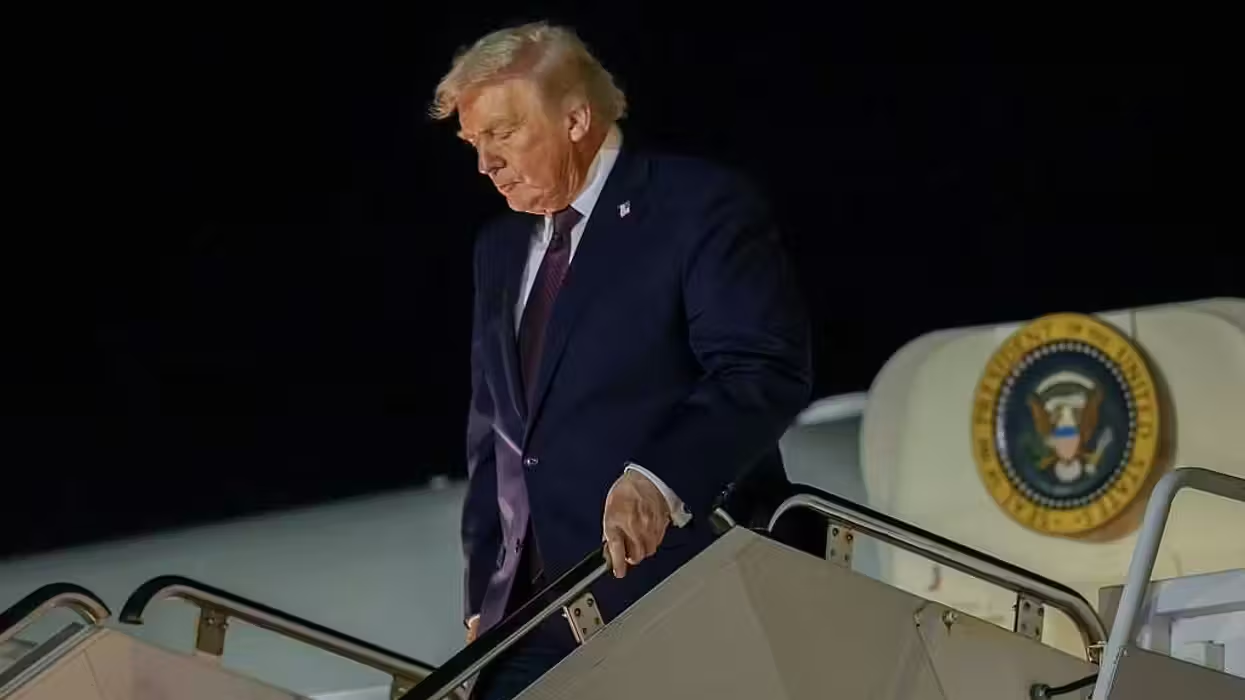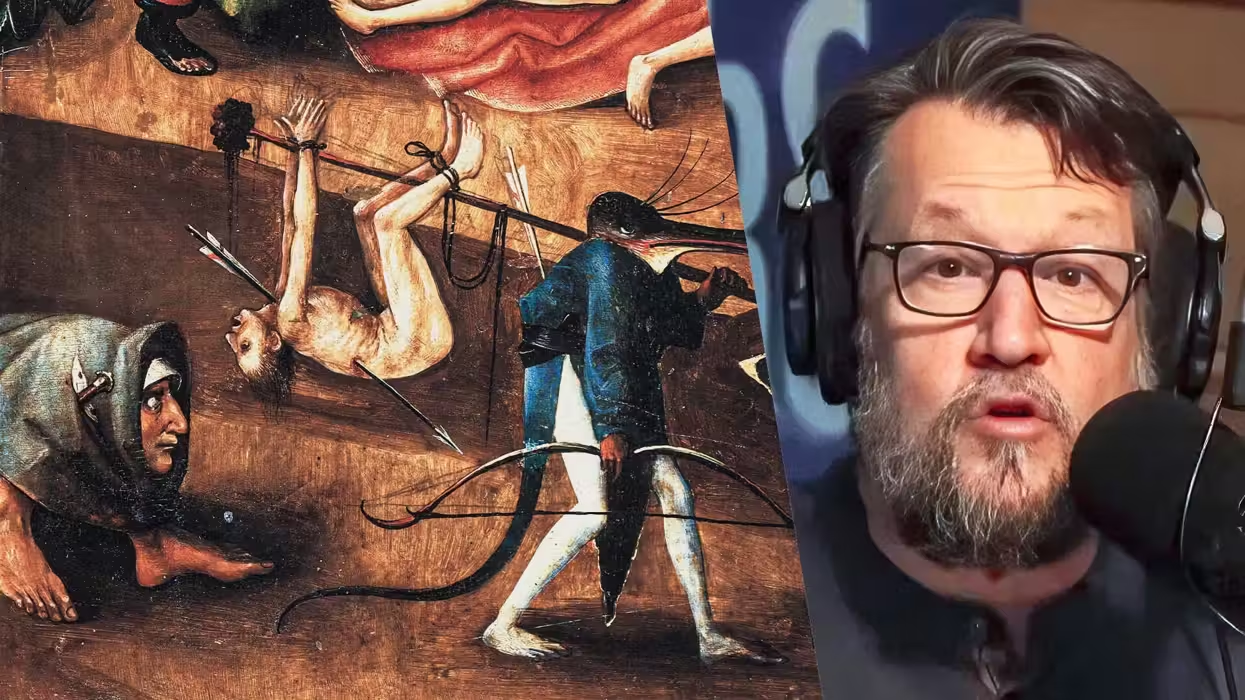
© 2025 Blaze Media LLC. All rights reserved.
Insurgents conducted an ambush in a busy marketplace. Rockets. The exchange of machine gun fire. Then silence.
A few minutes later, a truck zipped into our base and stopped at our aid station. An insurgent was sprawled over the hood, two wounded Afghan police were on litters, and two dead Afghan police officers were heaped in the bed.
I helped transfer the wounded into the aid station and turned around to see some Afghan police dragging their buddies’ corpses around the corner of a wall.
They left them on the ground. The flies were grateful.
Fast forward to the end of that deployment. A rocket killed one of my soldiers.
I wiped rocks and dirt off of his skin before we carefully put him into a sterile body bag. Soldiers helped carry him slowly into a bunker and gently laid him on the ground while we waited on the helicopter to take him away. Soldiers had to restrain each other - a powerful combination of hate, vengeance, sadness, fear, and desperation produced gut-wrenching cries.
I knelt beside my brother in the bunker and stayed with him for an hour while we waited for the helicopter. I didn’t want him to be alone. I didn’t let any flies touch the bag. I prayed for his family and how they didn’t know the truth of their husband, son, brother, and soon to be, daddy.
I remember tracing the contours of the bag with my fingers. I prayed for him to wake up. I doubted that he was actually gone. I wept deeper than ever before in my life.
When the helicopter came, we took great care to carry him out to the helicopter. While we were walking towards the loud aircraft, the crew chief held his hand over his heart.
The rotor blades were loud, but his gesture was deafening.
I’ve been to the WWII cemeteries in Normandy, France. The American cemetery is immaculate. The British cemetery is clean. The German cemetery is trash.
America honors her combat killed better than most of the world, but honoring our dead begins by making sure their sacrifice was made for the right reason. If we must lose life, then we should do everything necessary to benefit from its loss.
We do not honor our fallen when we fight politically correct wars.
Our Constitution gives Congress the power to declare war, but America hasn’t declared war since 1942. The last time an American enemy surrendered was 1945. It is no surprise, then, that every major military operation since WWII has not resulted in victory.
Memorial Day risks dishonoring our fallen warriors because most elected leaders aren’t ensuring that we fight wars the American way: where victory is the only outcome.
Victory will never be the outcome if war isn’t respected.
Politicians substitute victory for other outcomes. They want to reduce collateral damage, civilian casualties, or prevent media from displaying dead Americans. They don’t let our military break the enemy’s will. Instead, they tell soldiers not to enter mosques, not to search women, not to return fire if civilians are endangered. Do a simple search on ‘courageous restraint’ and you’ll get my point.
While deployed to Afghanistan in 2014, we were not allowed to engage our enemies if they were within 600 meters (roughly six football fields) of a civilian structure. Our enemy knew this because we told them. And so, our enemy measured out a distance inside of our prohibited area shot at us. Our reaction? We stood inside our bunkers.
The truth is that Americans don’t understand war so they don’t respect what they’re losing when someone dies in combat. And I blame politicians for not following the Constitution.
Politicians use war metaphors in their rhetoric. “I will fight for your values.” “The bill was killed in committee.” “Their campaign has a huge war chest.” “The campaign trail is tough.” All of these desensitize Americans (and politicians) to war, so that when war is necessary, America becomes less safe because the path to victory is violent.
I had a panic attack the first time I shoved gauze into another man’s leg. I was shaking. I almost threw up on him. I couldn’t hear. I started to black out. I had to look skyward just to clear my mind. I just kept cramming gauze into his wound.
The first time I searched a dead person, body parts easily came off because an apache’s machine gun shredded him. I remember rubbing my hands in the grass to get the blood off my gloves.
After we loaded our slain brother in the helicopter and its rotor wash faded over the mountain range, the women on our base were still crying. I still hear their cries.
I lose sleep because of this stuff.
The point is not that violence is horrible, but that it has a purpose. All of these bad things happen in war, and it is the responsibility of elected leaders to steward our military men and women’s lives to prevent it from happening unnecessarily. If politicians understood that, then they would make good decisions and we would wage war for the right reasons and fight the right way.
We fight unconstitutional wars today because we do not declare war. We adopt incremental approaches to economize war efforts - we want to see if we can achieve victory with minimal commitment. That’s like trying to low bid on a contract. This is war, not business.
We select utopian strategies that don’t use violence to break our enemy’s will. I actually carried money around in a backpack and was told to give it out to help “stimulate the economy.” We wanted Afghans to like us, not surrender to us. Do a search on ‘money as a weapon system.’ That’s Keynesian economics. It doesn’t work for our economy and it doesn’t work in war.
Our Founders understood violence because they experienced it. They specified declaring war as a function of Congress because they wanted to limit war. Requiring a declaration of war limits foreign entanglements, prioritizes national interests, identifies vital security threats, and (if declared) commits us to victory.
Politicians have lost respect for war because they don’t understand violence, and that causes them to make bad decisions when they commit our military to combat. If leaders understood what was going to happen in war, they would clearly identify our enemies, commit our nation to victory, and let our military win.
My grandfather served in the Pacific during WWII. He told me stories of American soldiers killing everyone they considered a threat. After I returned from my first deployment, he told me, “You fight until they’re tired of dying.”
Our enemies surrendered to us back in 1945. They don’t surrender to us today.
Understanding war allows America to honor its war dead beyond the cemetery speech on Memorial Day, or the issued statement for the press, or a meme on social media. The majority of Americans will never serve in uniform, but most will respect the fraction who do. I want them to have a deeper understanding why.
I’m thankful for our country and its heritage of respecting those who sacrifice for it. America is about people being able to make things better. We should respect war for the violent event that it is and hold our leaders accountable to following the wisdom of our Constitution. The Constitution limits the wars we commit to and forces us to win the ones we do. That is how we honor our fallen and make Memorial Day better.
But I’d like to challenge readers with something more macabre. We should be thankful for those who have fallen and hopeful that those who will join them in the future, do so for the right reasons.
Jarrin Jackson is a Millennial combat veteran and is a constitutional conservative who ran for Congress in Oklahoma’s Second Congressional District. He graduated from West Point in 2008, has led over 500 soldiers in his military career, and has earned two Bronze Stars for his service in combat. His campaign website is jarrinjackson.com.
Want to leave a tip?
We answer to you. Help keep our content free of advertisers and big tech censorship by leaving a tip today.
Want to join the conversation?
Already a subscriber?
more stories
Sign up for the Blaze newsletter
By signing up, you agree to our Privacy Policy and Terms of Use, and agree to receive content that may sometimes include advertisements. You may opt out at any time.
Related Content
© 2025 Blaze Media LLC. All rights reserved.
Get the stories that matter most delivered directly to your inbox.
By signing up, you agree to our Privacy Policy and Terms of Use, and agree to receive content that may sometimes include advertisements. You may opt out at any time.

